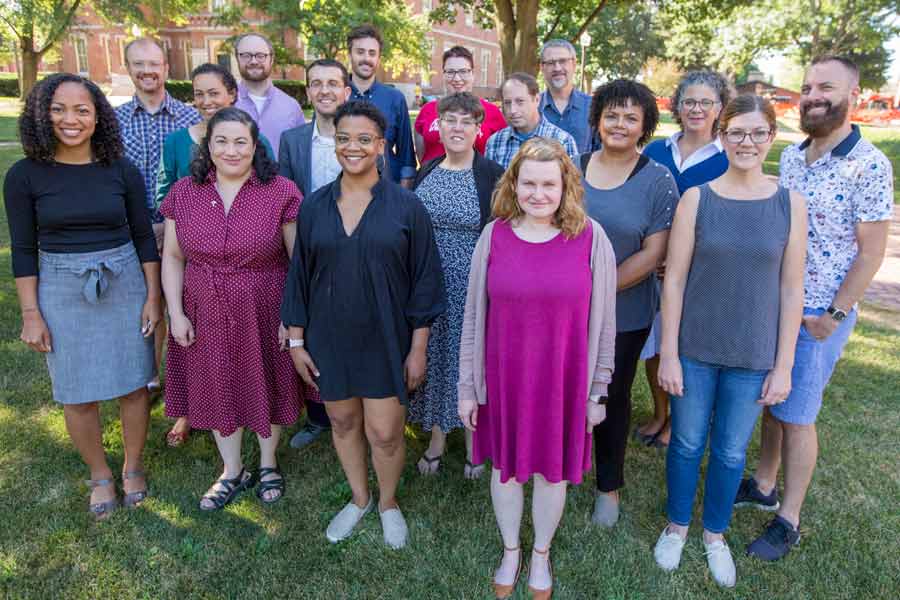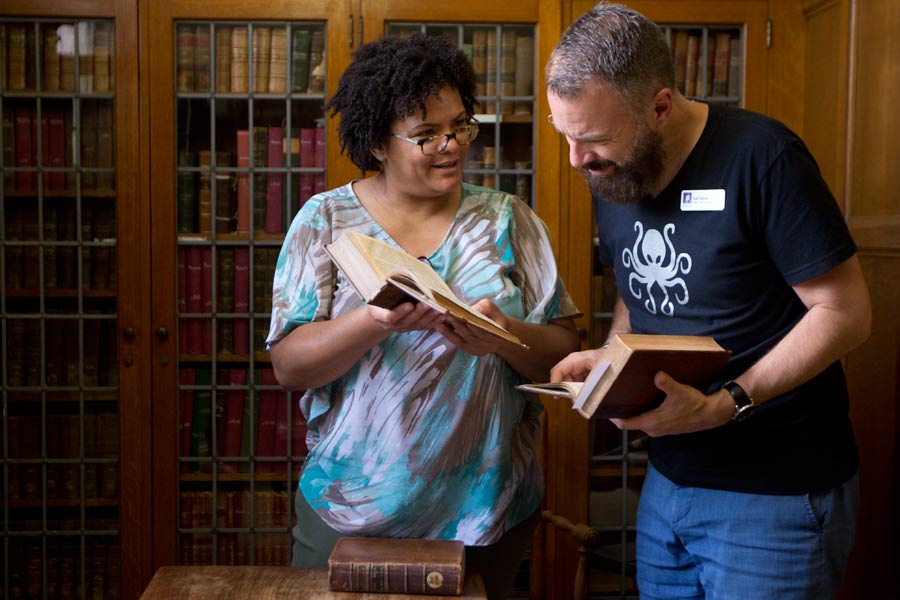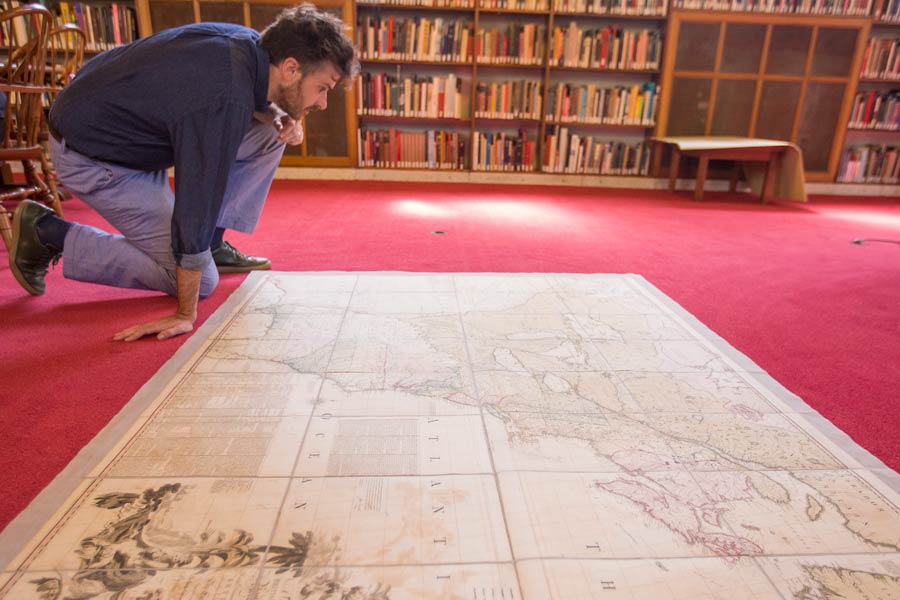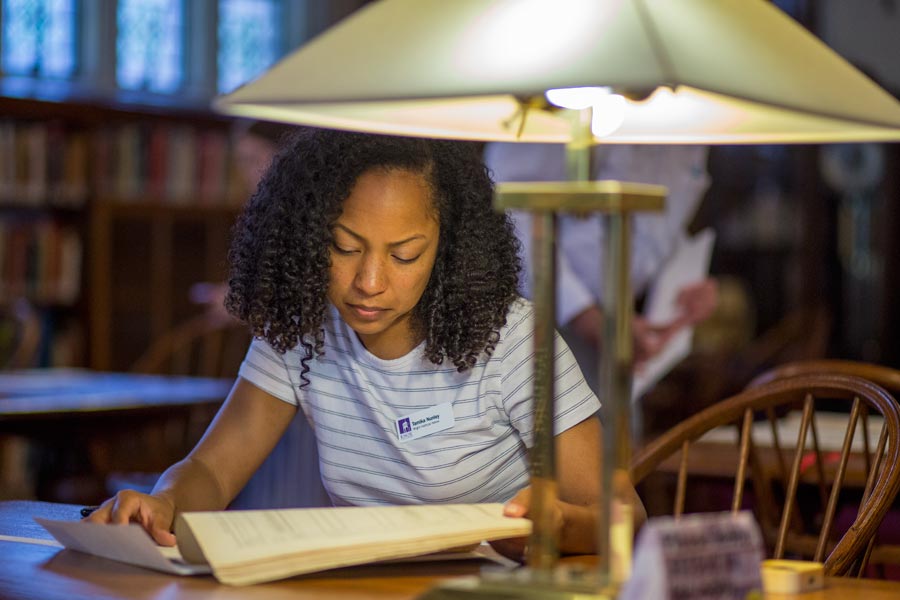

Bright Institute at Knox: History Scholars Return to Discuss Teaching Strategies and Research
Knox College recently hosted the second summer seminar of the Bright Institute, a selective program for professors who teach early American history at liberal arts colleges from across the United States.
From July 29 to August 9, the 14 Bright Fellows attended an in-residence summer seminar on the Knox campus. Their activities included discussing and analyzing various articles and books related to early American history, as well as exploring innovative teaching strategies.
The scholars, who are the first cohort of Bright Fellows, also attended a 2018 seminar at Knox and will participate in an additional seminar in 2020 as part of the three-year-long program. The Institute, directed by Knox College Bright Professor of American History Catherine Denial, is supported through a trust established by Edwin W. Bright and his wife, Mary Elizabeth Hand Bright, a 1944 Knox alumna.
Although only in its second year, the Bright Institute has already had a significant impact on its scholars' teaching and research. For Tamika Nunley, assistant professor of history at Oberlin College, seeing different approaches to the same courses has given her more strategies to work with.
“Connecting with fellows and participating in the pedagogy seminars really gave me fresh ideas about how to teach my U.S. Survey course this fall—such as thinking about teaching the course from the perspectives of Indigenous people,” Nunley said. “The Institute has also been a vital resource for professional development, specifically for how I navigate a career at a small liberal arts college.”
Lori Daggar, assistant professor of history at Ursinus College, said: “I continue to gather ideas from colleagues here, and my teaching and research will be so much better for it. [Seminar co-leader Jennifer] Morgan's syllabus this year allowed me to think much more deeply about racial capitalism in ways that will make my own project much more refined.”
Bright Institute participants commended Knox’s liberal arts environment and Denial’s leadership for the success of the program.
"This is an extraordinary Institute. It offers its participants a singularly unique experience—the intellectual and financial support to take some time to think deeply together about teaching and research,” said Morgan, professor and chair of social & cultural analysis & history at New York University.
“I don't think I know of another such fellowship opportunity. It seemed particularly valuable for liberal arts faculty, who are seriously burdened with teaching and service,” she added. “I commend Knox and Professor Denial for setting this in motion. I believe it will have a lasting impact not only on the participants, but on the field."
Denial noted that the focus of the seminars changes every year. While the 2018 session focused on the history of the American Revolution, this year’s seminar explored the Black Atlantic World and the Black Radical Tradition.
“We read a number of theorists who wrestle with how best to research and write the history of enslavement, and thought critically about the after-life of slavery in the United States,” she said. “For the pedagogy portion of our seminar, we thought about surveillance, privacy, data, and our students. How do we thoughtfully and safely use technology in our interactions with students, in and out of the classroom?”
The 2019 seminar was led by Morgan, professor of history at New York University, and Chris Gilliard, professor of English at Macomb Community College and advisor of Digital Pedagogy Lab.
Morgan said that the scholars seemed to leave with “an expanded sense of the field of early American history.”
“For some, the readings on slavery and finance were new. I think that those participants leave with a commitment to expanding their teaching to reflect this new understanding,” she said. “For those who worked more directly in these aspects of this field, I think that they left with a deeper understanding, one that will absolutely propel their research and their writing.”
This year's summer seminar also included workshops, during which the scholars read and gave feedback on each other’s articles, book chapters, and papers.
“Having the opportunity to workshop my research put me a step further in my timeline towards publishing my journal article,” Nunley said. “I found it really productive and I appreciated the meaningful feedback.”
Denial observed that the Bright Institute participants “have a lot of wisdom to share with one another and respect each other enormously.”
”We are at all stages of the research process, from people dipping into writing for the first time in a couple of years to people who are finishing books,” she said. “The fact that the cohort gets to come back for three years helps build our sense of camaraderie and trust, so that we really come together as a team to lift every boat.”
Published on August 20, 2019
Shruti Mungi '19




